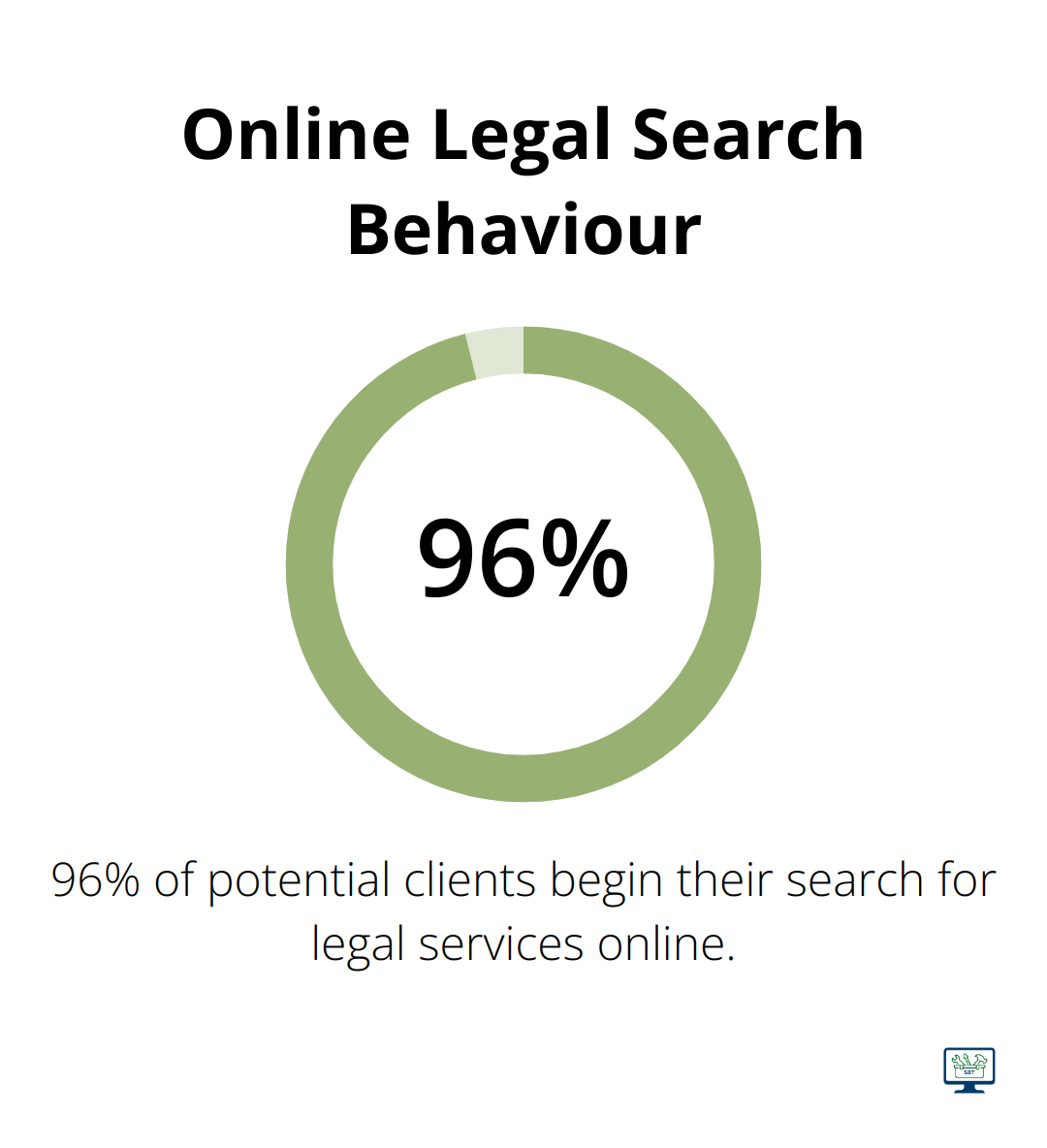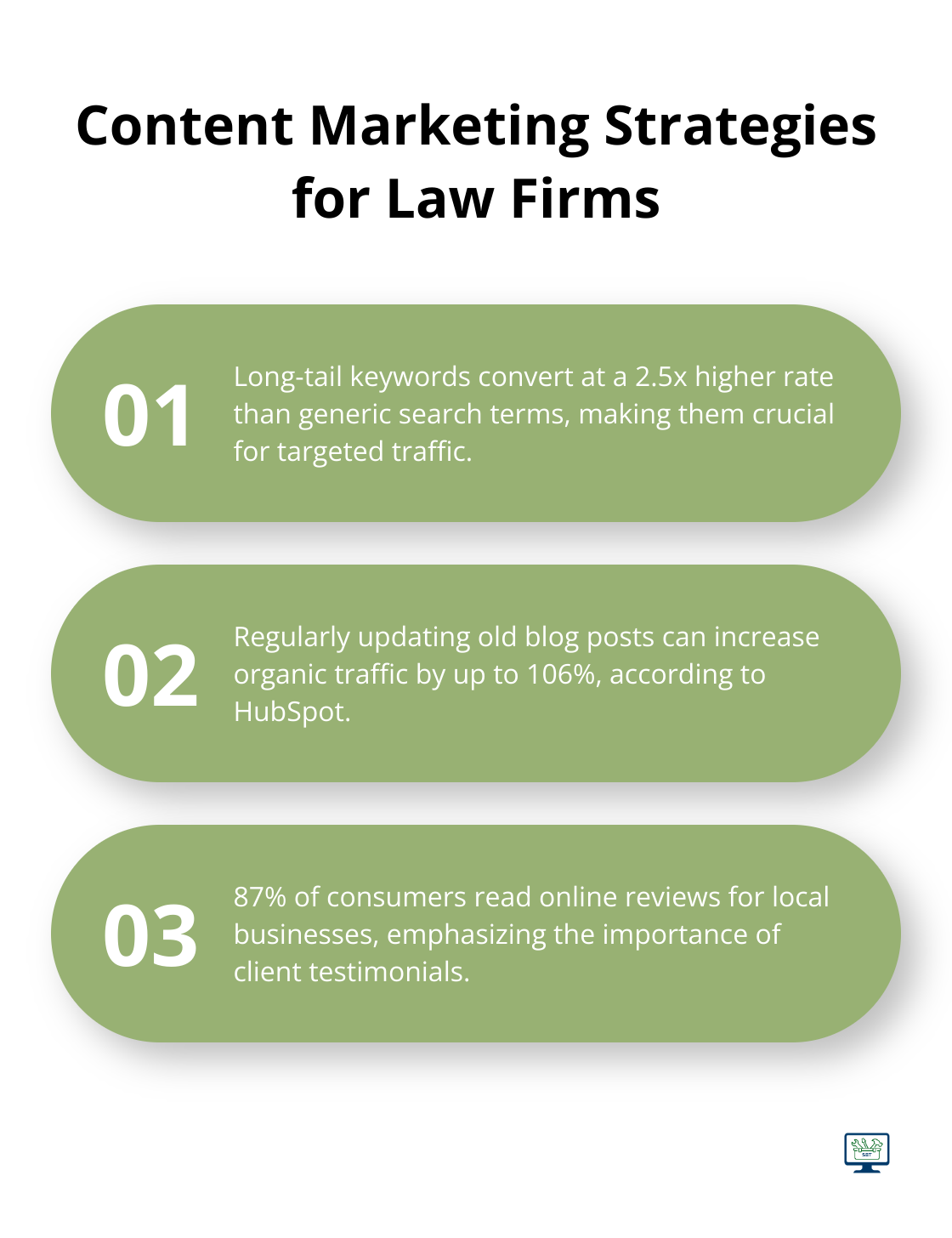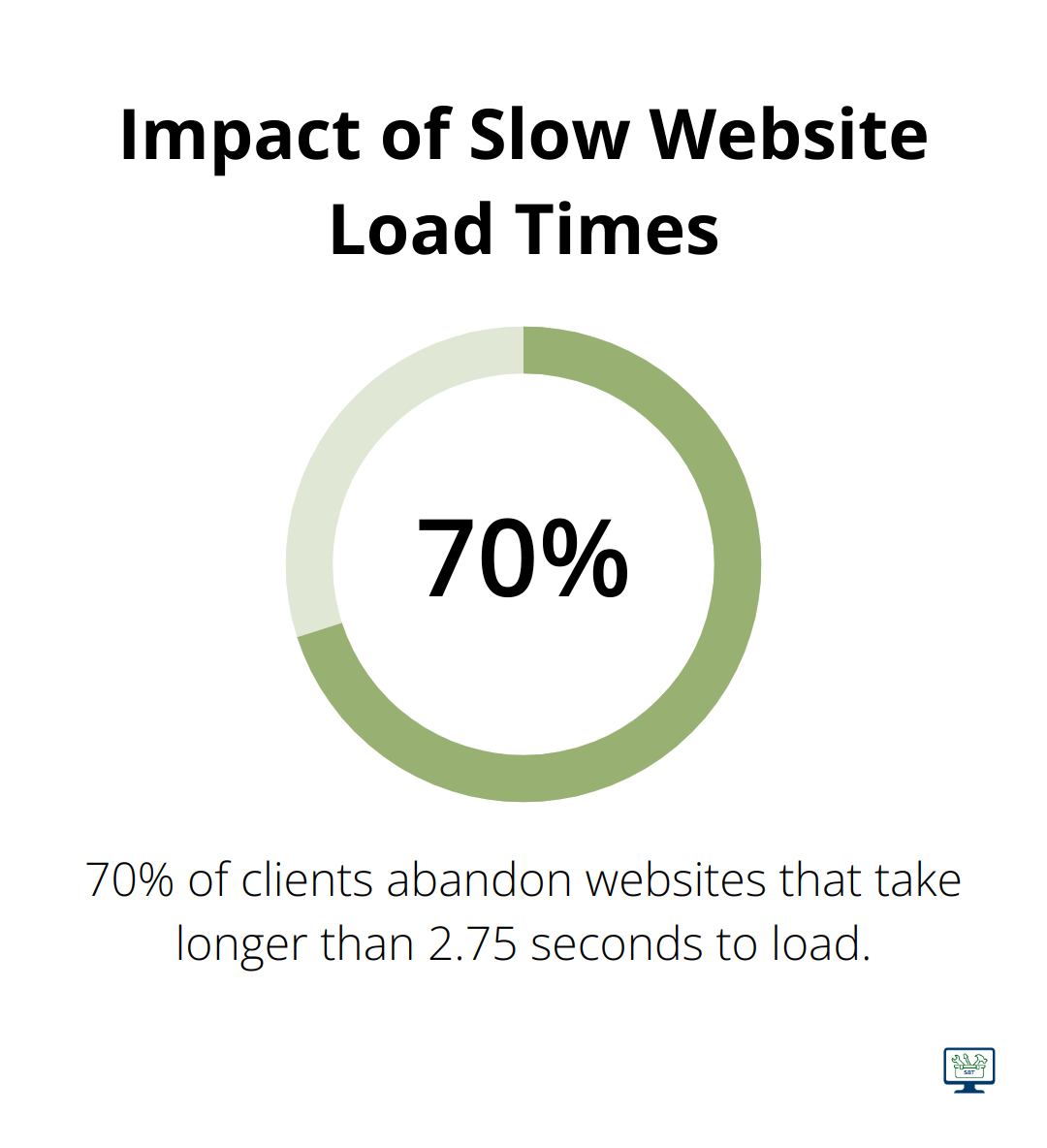Law Firm SEO Marketing: Strategies for Success

Published On Jun 18,2025
SEO marketing for law firms is a game-changer in today’s digital landscape. At WebsiteStrategies, we’ve seen firsthand how effective SEO strategies can transform a law firm’s online presence.
With the right approach, law firms can attract more clients, establish authority, and outrank competitors. This guide will explore proven tactics to boost your law firm’s visibility and success in search engine results.
Why Law Firm SEO Matters
SEO for law firms isn’t just a buzzword-it’s a necessity in today’s digital-first world. A staggering 96% of potential clients start their legal search online, making a strong SEO strategy essential for a law firm’s success.

The Power of Visibility
When potential clients search for legal services, they often choose from the first few results on Google. The top position captures 31% of all clicks. This means that if your law firm doesn’t rank well, you miss out on a significant portion of potential business.
Building Trust and Credibility
SEO goes beyond rankings-it establishes your firm as a trusted authority in your field. Sharing legal knowledge with high-quality content, prioritising SEO for your legal site, maintaining a professional website, and leveraging client testimonials are key strategies for building trust and credibility online.
Local SEO: Your Secret Weapon
For law firms, local SEO is a game-changer. 46% of all Google searches include a local intent, and 97% of users turn to online search to find a local business. Moreover, 78% of local searches result in offline purchases, highlighting the importance of optimising your online presence for local searches.
Overcoming Common Challenges
The legal industry faces unique SEO challenges. One major hurdle is the highly competitive nature of legal keywords. Terms like “personal injury lawyer” or “divorce attorney” are fiercely contested, making it difficult for smaller firms to rank.
Another challenge involves creating content that’s both SEO-friendly and compliant with legal ethics rules. Law firms must strike a balance between being informative and avoiding anything that could be construed as legal advice.
Technical Considerations
Technical SEO is vital for law firm websites. With 70% of clients abandoning websites that take longer than 2.75 seconds to load, page speed optimisation is essential. Additionally, ensuring your website is mobile-friendly is non-negotiable, as more clients search for legal services on their smartphones.
The next chapter will explore effective SEO strategies that law firms can implement to overcome these challenges and achieve online success. From keyword research to content creation, we’ll provide actionable tips to boost your firm’s visibility and attract more clients.
How to Implement Effective SEO Strategies for Law Firms
Master Keyword Research for Legal Topics
Identify the specific legal services you offer. Use tools like Google Keyword Planner or SEMrush to find relevant keywords. Focus on long-tail keywords that match user intent. For example, instead of just “divorce lawyer,” target phrases like “divorce lawyer for high-net-worth individuals in Sydney.”
Recent research by Backlinko reveals that long-tail keywords convert at a 2.5x higher rate than generic search terms. This translates to more targeted traffic for your law firm.

Create High-Quality Legal Content
Content reigns supreme in SEO, especially for law firms. Produce in-depth, authoritative content that addresses common legal questions and concerns. The Content Marketing Institute’s annual B2B Content Marketing Benchmarks, Budgets, and Trends: Outlook for 2025 provides insights into content marketing trends for businesses.
Develop a content calendar that focuses on topics relevant to your practice areas. For instance, if you’re a family law firm, write articles on topics like “How to File for Divorce in Australia” or “Child Custody Laws in New South Wales.”
HubSpot reports that updating old blog posts can increase organic traffic by up to 106%. Make it a habit to refresh your content regularly.
Build Authority Through Backlinks and Citations
Backlinks from reputable legal websites significantly boost your site’s authority. Look for opportunities to contribute guest posts to legal blogs or news sites. Moz ranks domain authority as one of the top ranking factors for Google.
Don’t overlook legal directories. List your firm in popular legal directories like FindLaw or Lawyers.com.
Optimise for Local SEO
For law firms, local SEO is essential. Google reports that 46% of all searches have local intent. Start by claiming and optimising your Google Business Profile. Include your firm’s name, address, phone number, and business hours.
Ask satisfied clients to leave reviews. BrightLocal’s research shows that 87% of consumers read online reviews for local businesses in 2020.
Create location-specific pages on your website. For example, if you serve multiple cities, dedicate pages for each location, like “Personal Injury Lawyer in Brisbane” and “Personal Injury Lawyer in Gold Coast.”
Monitor and Adapt Your SEO Strategy
SEO is not a set-and-forget task. It requires ongoing monitoring and adaptation. Use tools like Google Analytics and Google Search Console to track your website’s performance. Pay attention to metrics such as organic traffic, bounce rate, and conversion rate.
Stay informed about changes in search engine algorithms. Google makes hundreds of updates each year, and some can significantly impact your rankings. Follow reputable SEO blogs and attend industry conferences to stay ahead of the curve.
As you implement these strategies, you’ll notice improvements in your law firm’s online visibility. However, SEO is a marathon, not a sprint. It demands consistent effort and adaptation to changing algorithms and user behaviours. In the next chapter, we’ll explore the technical aspects of SEO that can give your law firm’s website an extra edge in search rankings.
How Law Firms Can Optimise Technical SEO
Technical SEO forms the backbone of a law firm’s online presence. Neglecting these aspects can hinder even the most well-crafted content strategies.
Mobile-First Approach
Mobile-first indexing prioritises websites that are mobile-friendly in response to the growing number of people who browse the web on their smartphones. Law firms should use responsive design, adapting seamlessly to various screen sizes.
Google’s Mobile-Friendly Test tool helps identify issues such as text that’s too small to read on mobile or clickable elements that are too close together. Address these problems promptly to improve your mobile user experience.
Speed Optimisation
Page speed directly impacts user experience and is a critical ranking factor. Starting in May, slow loading times will have a much bigger impact on your overall ranking than ever before. PageSpeed Insights analyses your site’s performance and provides specific recommendations for improvement.

Common speed optimisation techniques include:
- Compressing images (without sacrificing quality)
- Minifying CSS, JavaScript, and HTML
- Leveraging browser caching
- Using a Content Delivery Network (CDN)
Schema Markup Implementation
Schema markup helps search engines understand the context of your content, potentially improving your visibility in search results. For law firms, LocalBusiness and Attorney schema types are particularly relevant.
Implement schema markup for:
- Your law firm’s contact information
- Attorney profiles
- Legal services offered
- Client reviews and ratings
Google’s Structured Data Testing Tool ensures your schema is correctly implemented and error-free.
Site Security
HTTPS is no longer optional. Google has used HTTPS as a ranking signal since 2014, and browsers now mark non-HTTPS sites as “Not Secure.” This can erode trust, especially for law firms handling sensitive client information.
When implementing HTTPS:
- Use 2048-bit key certificates for strong security
- Implement HTTP Strict Transport Security (HSTS)
- Ensure all site resources (images, scripts, etc.) are served over HTTPS
Regular audits using tools like Screaming Frog or SEMrush help identify and address issues before they impact your rankings. Mastering these technical aspects provides your law firm’s website with a solid foundation for SEO success, complementing your content and link-building efforts.
Final Thoughts
SEO marketing for law firms provides a powerful tool to enhance online presence and client acquisition. We explored strategies to improve visibility in search engine results, including keyword research, content creation, and link-building. Technical aspects like mobile-friendly design, speed optimisation, and secure website implementation also play vital roles in a firm’s online success.
SEO requires continuous effort as search engine algorithms evolve and competitors strive to improve their rankings. Regular monitoring, analysis, and adaptation of SEO strategies become essential to maintain and improve search result positions. Many law firms benefit from professional expertise to navigate the complexities of SEO and gain a competitive edge.
At WebsiteStrategies, we help law firms boost their online visibility and authority. Our team offers customised SEO consultancy, comprehensive audits, and holistic strategies (tailored to the legal industry). Effective SEO marketing for law firms attracts qualified leads, establishes credibility, and grows client bases in today’s competitive online landscape.
